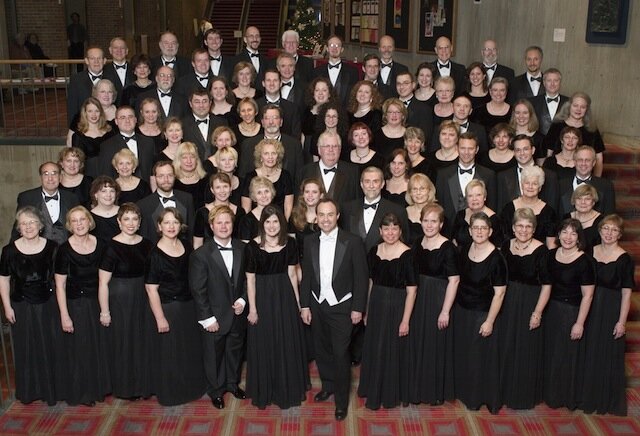
No, Rachmaninov’s All-Night Vigil (last performance June 9, 8 p.m., at St. Marks) does not last all night. You aren’t sitting there until the dawn comes up listening to glorious music (though it’s so lovely you might want it never to end).
It was so named when Eastern Orthodox churches put together groups of their liturgical offices to read and sing together, including this one for different offices from dusk to early morning. It actually lasts about an hour.
Rachmaninov composed this supremely serene setting for the vigil in the midst of World War I, not long before the Russian Revolution. It has become well loved outside its church environs, but it felt particularly appropriate to be hearing it as sung by Seattle Choral Company within the walls of St. Mark’s Cathedral Friday night.
The performance began with three other brief works of Orthodox sacred music. Mircea Diaconescu’s Lumina Lina immediately took the listener into the feel of old Orthodox music, albeit with some modern harmonies, and was followed by John Tavener’s Eonia (Eternity) and two prayers from Drei Geistliche Gesänge set by Alfred Schnittke.
A choir of some fifty-plus singers under founding conductor and artistic director Freddie Coleman, SCC has sung the Vigil (also knows as the Vespers) before, most recently eight years ago. From the start, its performance Friday (repeated tonight, Saturday) invoked a sense of gentle peacefulness. Throughout its fifteen sections, Coleman kept the tempi flowing, mostly unhurried and steady but with occasional faster parts. Rachmaninov, not a particularly religious man, nevertheless understood and knew the traditional music of the Church and much of what he wrote for the Vigil lies closely in that vein.
Phrasing and shaping were beautifully subtle, with moments of hushed reverence and others of joyful excitement, while Coleman’s pacing made sure that all the voices, singing unaccompanied for the entire concert, sounded as fresh and warm at the end as at the beginning. There was never any forcing or pushing. Occasional brief solo moments were taken by choir members, notably some pure high tenor singing from Justin Ferris.
Orthodox music is not emotional in a sense of having drama in it, nor much dynamic range. It’s more a cumulative hypnotic effect drawing you further and further into the music and the words which of course are the reason for the music.
SCC sang so clearly that it was quite easy to keep place in the program with the words, and the program itself was a model of how a work like this, sung in a language with which we don’t even share an alphabet, can be brought home to the listeners. A short description preceded the words of each section, and these were in three columns, first the Russian in Cyrillic, then phonetic Russian in our Roman alphabet, lastly the translation.
I hope we don’t have to wait another eight years before Seattle Choral Company sings this again.